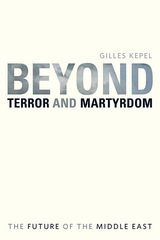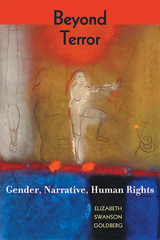
Since 2001, two dominant worldviews have clashed in the global arena: a neoconservative nightmare of an insidious Islamic terrorist threat to civilized life, and a jihadist myth of martyrdom through the slaughter of infidels. Across the airwaves and on the ground, an ill-defined and uncontrollable war has raged between these two opposing scenarios. Deadly images and threats—from the televised beheading of Western hostages to graphic pictures of torture at Abu Ghraib, from the destruction wrought by suicide bombers in London and Madrid to civilian deaths at the hands of American occupation forces in Iraq—have polarized populations on both sides of this divide.
Yet, as the noted Middle East scholar and commentator Gilles Kepel demonstrates, President Bush’s War on Terror masks a complex political agenda in the Middle East—enforcing democracy, accessing Iraqi oil, securing Israel, and seeking regime change in Iran. Osama bin Laden’s call for martyrs to rise up against the apostate and hasten the dawn of a universal Islamic state papers over a fractured, fragmented Islamic world that is waging war against itself.
Beyond Terror and Martyrdom sounds the alarm to the West and to Islam that both of these exhausted narratives are bankrupt—neither productive of democratic change in the Middle East nor of unity in Islam. Kepel urges us to escape the ideological quagmire of terrorism and martyrdom and explore the terms of a new and constructive dialogue between Islam and the West, one for which Europe, with its expanding and restless Muslim populations, may be the proving ground.

In traditional narrative contexts-legal, psychoanalytic, and documentary-the ethics of representing violations of human rights are widely acknowledged. But what are the principles that guide the creation and dissemination of historically based fictional narratives? Are such representations capable of shaping, changing, or even effectively depicting "real" human atrocities? How do existing ideas about gender influence the way these narratives are written and perceived?
In Beyond Terror , Elizabeth Swanson Goldberg argues that after human rights violations have occurred, the realm of representation-actual and fictional-is precisely the ground upon which struggles for justice and peace are waged in legal, emotional, and cultural terms. Moving beyond the myriad of fictional accounts that have portrayed the carnage of World War II, the Holocaust, and the Vietnam War, Goldberg focuses on emerging narratives about recent abuses, including those in South Africa, Rwanda, and Iraq.
Through the lens of literary, feminist, and human rights theory, this important book examines the meaning and influence of films such as Cry Freedom, Three Kings, and Salvador , and novels such as Gil Courtemanche's A Sunday at the Pool in Kigali , Pat Barker's Double Vision , and Edwidge Danticat's The Farming of Bones .
READERS
Browse our collection.
PUBLISHERS
See BiblioVault's publisher services.
STUDENT SERVICES
Files for college accessibility offices.
UChicago Accessibility Resources
home | accessibility | search | about | contact us
BiblioVault ® 2001 - 2024
The University of Chicago Press









